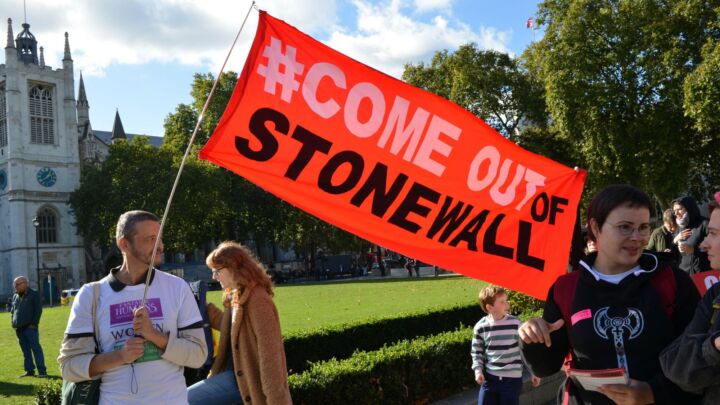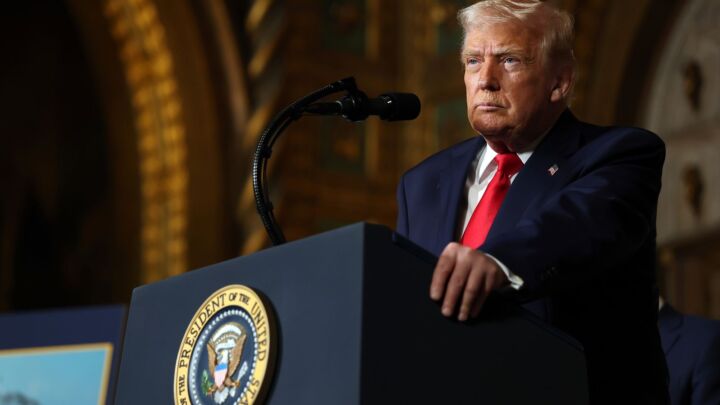The ASB Act: all power to the state
New UK laws have freed the state to act as it pleases.

Want unlimited, ad-free access? Become a spiked supporter.
The recently enacted UK Anti-Social Behaviour, Crime and Policing Act embodies a new relation between state and society. This relation has been implicit, developing slowly and inherent in many pieces of legislation, but this law embodies it overtly and completely.
From my conversations with civil servants involved in drafting the powers, it became clear that the underlying idea of the law is that local authorities should be ‘enabled’ to do whatever they want to do. In the consultation process, local authorities were asked: ‘Is there anything that you would want to do that is not covered by these powers?’ That is, they were asked not, ‘what does this allow you to do?’, but ‘is there anything you can’t do?’.
Here we see a new approach to law and to lawmaking: the development of the freedom of action of state officials, as an end in itself.
Historically, it was the freedom of civil society that was promoted as an end in itself: freedom of speech and of association were promoted as goods in themselves, regardless of how people chose to use these freedoms. Now it is the freedom of the state that is developed systematically as a project, and which requires no further justification. The expansion and creation of new powers is seen as good in itself, be it a law-and-order policy or a neighbourhood-renewal strategy.
Increasingly, to solve social problems means to create new powers. The ASB Act includes ‘public-space protection orders’, ‘community-protection notices’, ‘dispersal powers’, as well as new behavioural injunctions and powers of eviction (see ASB Act guide). So – by a strange inversion – it is through giving the state new powers that a community is served, and public space ‘protected’.
This means a different form of law, and a different form of policy. Laws are no longer seen as limitations on the arbitrary power of the state. Instead, they are described as ‘tools’, things to be used by officials. They are described as ‘useful’, like a good spanner or a saw. The official here is the subject and the law a mute thing in their hands.
Yet, significantly, new powers are created without any specific plan in mind as to what officials may want to use these powers for. New powers are described as being ‘part of the toolkit’. The new ASB Act was described as a ‘great addition to the toolkit’ and ‘quite handy’. The concern here is merely that, in any situation, local authorities and police should have a wide variety of options as to how they proceed.
In any concrete situation – for example, a person playing music too loud – the authorities will be able to survey their toolkit and pick exactly the right legal instrument for the job. Ideally, in any situation there will be a power that can be used there and then, with as few obstacles as possible.
In the consultation on the ASB Act, any restriction on the free action of officials – such as the need for a public consultation, or a formal legal proceedure – was described as ‘too bureaucratic’ or as ‘red tape’. So while society becomes tied up in more and more red tape, the action of officialdom is cleared from all possible restrictions. The new principle becomes: restriction for society, freedom for officials.
This law embodies a constitutional change which has been developing for a while, and is now, in the shape of the ASB Act, stated explicitly. The classic relationship between state and society is dead. AV Dicey’s Introduction to the Study of the Law of the Constitution explains how, in the English constitution, it is the freedom of civil society which is the general and default principle, while the power of the state is limited and must be justified. Everything is allowed unless it is specifically banned; every incursion of state power into the domain of civil society is a special event which requires specific justification. The rule of law, he said, excludes ‘arbitrariness, or prerogative… on the part of government’, or any form of ‘wide, arbitrary, or discretionary powers of constraint’.
As we approach the 800-year anniversary of the Magna Carta, it is clear that this constitutional arrangement has now been inverted. Significantly, this has occurred not through the totalitarian force of an assertive state – through martial or sedition law, star chambers or inquisitions – but in the anodyne form of law-as-‘toolkit’.
This is why the ASB Act passed so quietly and with so little comment. It is not that the domain of civil society is being retaken or stamped upon, but rather that it has evaporated as a principle or reality in policymaking. That law should be a ‘tool’ for officials to use now appears commonsense, natural.
A community is protected not through freedom but through a ‘community-protection notice’. The only remaining political subject is the official, and the law becomes their hardware store.
Josie Appleton is director of the Manifesto Club, which is running a campaign against the new Anti-Social Behaviour, Crime and Policing Act. To find out more, email: [email protected]
You’ve read 3 free articles this month.
Support spiked and get unlimited access.
Help us hit our 1% target
spiked is funded by readers like you. It’s your generosity that keeps us fearless and independent.
Only 0.1% of our regular readers currently support spiked. If just 1% gave, we could grow our team – and step up the fight for free speech and democracy right when it matters most.
Join today from £5/month (£50/year) and get unlimited, ad-free access, bonus content, exclusive events and more – all while helping to keep spiked saying the unsayable.
Monthly support makes the biggest difference. Thank you.










Comments
Want to join the conversation?
Only spiked supporters and patrons, who donate regularly to us, can comment on our articles.